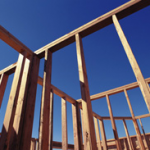Maracay Purchases 91 Homesites in Phoenix East Valley
 Two land purchases in Queen Creek and Mesa total $5.9 million
Two land purchases in Queen Creek and Mesa total $5.9 million
PHOENIX, Arizona – Maracay Homes, a wholly owned company of the TRI Pointe Group (NYSE: TPH), closed on two land purchases in Phoenix’s East Valley this month, totaling approximately $5.9 million.
The parcels, located in Queen Creek and Mesa, will be developed into new, single-family home neighborhoods scheduled to open in late 2018, said Jason Weber, Maracay Homes’ vice president of land acquisitions and development.
In Mesa, Maracay paid $3.67 million to buy the land for 53 additional homesites in the Eastmark master-planned community, near Ellsworth and Ray roads. The Arizona homebuilder also posted a letter of credit for an additional $1.57 million in development to buy the guaranteed finished homesites. Maracay has a long-standing presence in the five-square-mile community of Eastmark, which is one of the top selling master-planned communities in America, according to a 2017 mid-year report released by real estate advisory firm RCLCO.
Nathan & Associates brokered the transaction between Maracay and the seller, DMB Mesa Proving Grounds, LLC, an entity owned by DMB. Homes built on the 8,100-square-foot homesites will range from 2,300 to 3,900 square feet.
Meanwhile, in Queen Creek, Maracay Homes closed on 38 homesites at Highland Vistas, a 19.4-acre, gated subdivision located at the northwest corner of Hunt Highway and 172nd Street. Maracay paid $2.2 million to buy the pre-platted homesites, each averaging about 11,200 square feet. Ryan Willis Properties brokered the transaction between Maracay and the seller, Diamond G Holdings, LLC, an entity owned by investor Kip Gilleland. Residences are expected to range in size from 2,990 to 3,450 square feet.
“We talk about the importance of prime location when buying a new home and what it means to truly love where you live. The East Valley hits the mark on all levels,” said Weber. “It not only offers highly rated schools and some of the world’s top employers – including Intel, General Dynamics, Microchip and The Boeing Company – it also features quality shopping and dining, world-class entertainment, and access to excellent outdoor recreation.”
The East Valley also rests near one of the largest and most efficient airports in the country, offering easy access to Talking Stick Arena and Chase Field and boasts more than 300 days of sunshine per year. “It’s a great place to call home,” Weber said.

